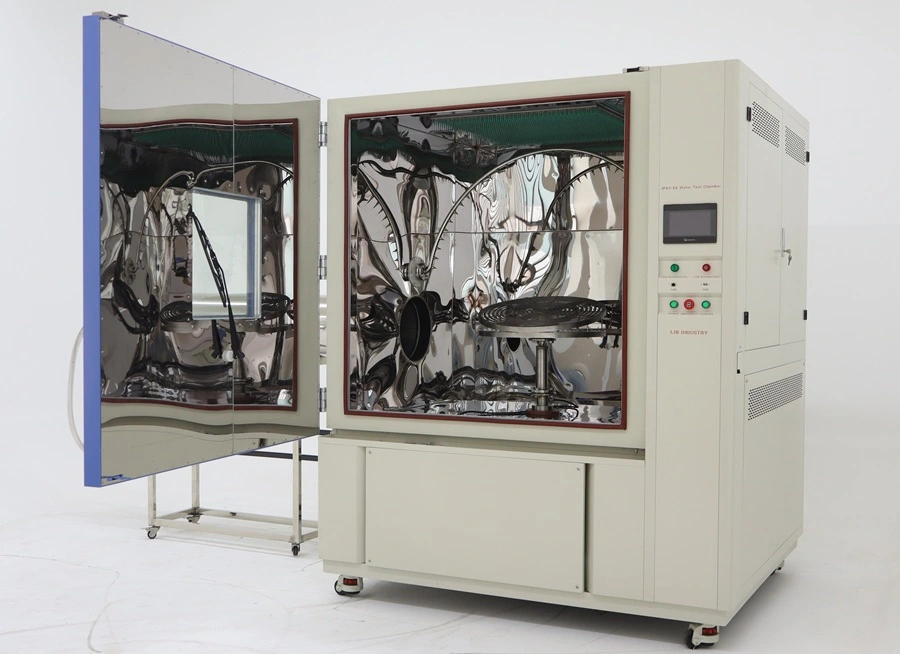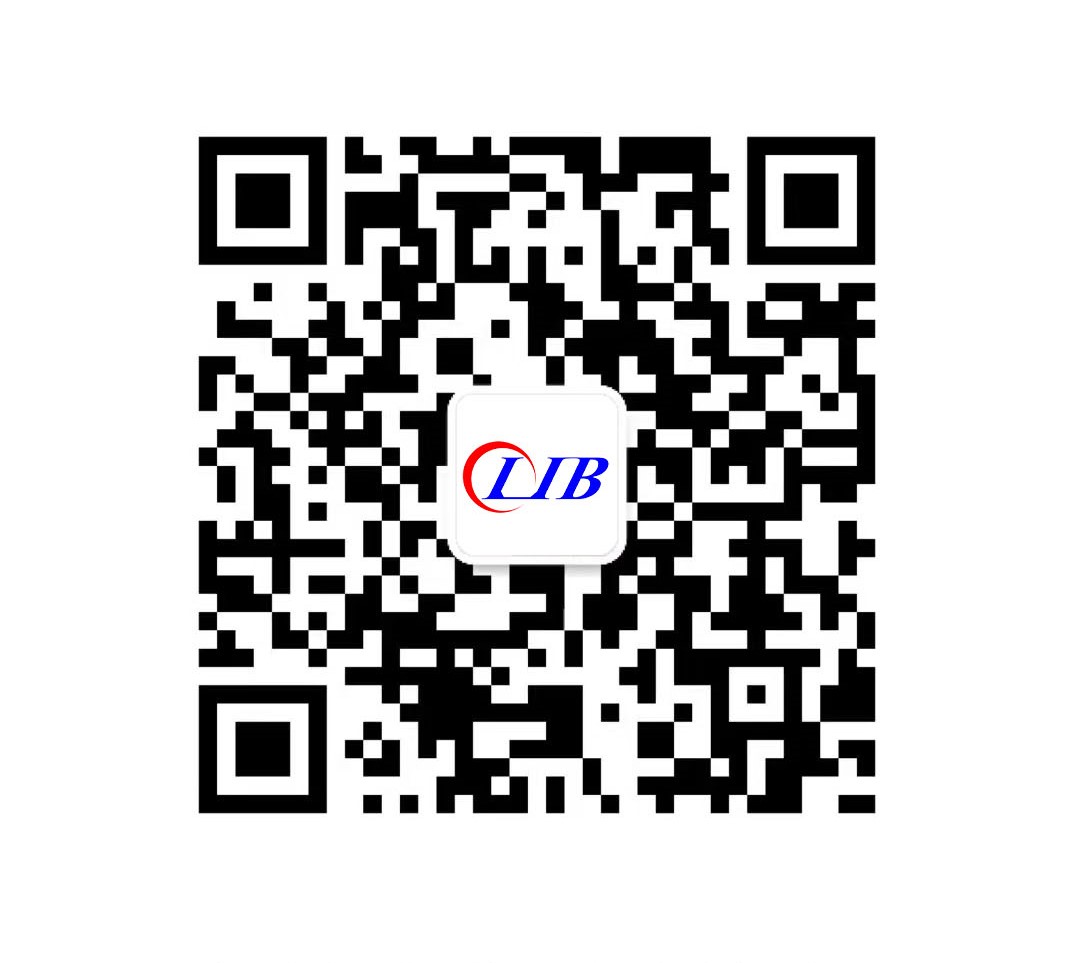Understanding IPX9k Waterproof Testing Under IEC 60529
Understanding IPX9k Waterproof Testing Under IEC 60529
IPX9k waterproof testing represents the most stringent level of liquid ingress protection, specifically designed to evaluate equipment against extreme high-pressure and high-temperature water jets. This testing, conducted using IEC 60529 IPX9k equipment, has become increasingly critical across automotive, industrial machinery, and food processing sectors where equipment faces intensive cleaning protocols. Originally developed for road vehicles requiring regular intensive cleaning - such as dump trucks and concrete mixers - the standard has expanded into diverse applications. Understanding the technical parameters, testing methodologies, and compliance requirements enables manufacturers to design products that withstand the harshest environmental challenges while meeting international regulatory standards.

What Does the IPX9k Rating Mean in IEC 60529?
Decoding the IP Code Structure
The Ingress Protection rating system uses a two-digit classification where the first digit indicates solid particle protection and the second addresses liquid ingress resistance. The "X" designation in IPX9k signifies that dust protection testing was not conducted or is not applicable, while the "9k" denotes the highest level of water protection against pressurized, high-temperature spray applications.
The "K" Designation Significance
The "K" suffix specifically references water pressure requirements, distinguishing this rating from standard IP ratings by emphasizing enhanced pressure specifications. This designation originated from German automotive standards and was later incorporated into international protocols. The "K" variants include 4K, 6K, and 9K, each maintaining strict water pressure criteria.
Standard Evolution and Current Framework
IPX9k testing was initially established under DIN 40050-9, which extended the IEC 60529 rating system, and has since been superseded by ISO 20653:2013 for road vehicles. The standard addresses specific industry needs where conventional waterproofing proves inadequate. Modern certification requires comprehensive documentation demonstrating compliance with temperature, pressure, flow rate, and duration parameters.
High-Pressure and High-Temperature Water Jet Principles
Pressure Parameters and Their Impact
IPX9k testing requires water pressure ranging from 8000 to 10000 kPa (80-100 bar), creating significant mechanical stress on enclosure seals and joints. This pressure level simulates industrial steam cleaning equipment and automated wash systems. The sustained pressure exposes potential vulnerabilities in gasket compression, seal integrity, and material fatigue that lower-rated tests cannot reveal.
Temperature Requirements and Material Stress
Test water must be maintained at +80°C to +88°C, creating thermal expansion challenges for different materials within the enclosure assembly. Hot water reduces viscosity, potentially allowing penetration through microscopic gaps that cold water cannot access. Combined thermal and mechanical stress tests the product under realistic operational conditions where temperature fluctuations occur during cleaning cycles.
Flow Rate and Distribution Dynamics
The water flow rate specification of 14-16 liters per minute ensures consistent spray intensity throughout testing. Flow rate directly correlates with the kinetic energy impacting the enclosure surface. Proper calibration prevents test variations that could produce inconsistent results across different testing facilities.
Equipment Design Requirements for IPX9k Testing
Testing Chamber Configuration
IEC 60529 IPX9k equipment typically features an enclosed chamber constructed from corrosion-resistant materials. The R9K-1200 model includes a 1000-liter internal volume with 1000×1000×1000mm internal dimensions, providing adequate space for various specimen sizes. The chamber incorporates observation windows with double-layer insulating glass and wipers for monitoring test progress without interrupting procedures.
Spray Nozzle Specifications and Positioning
Test nozzles must be positioned at a distance of 100-150mm from the specimen surface, ensuring proper pressure delivery without creating artificial stress concentrations. The system employs four spray nozzles configured to deliver water at precise angles: 0°, 30°, 60°, and 90°. Each angular position receives 30 seconds of exposure, totaling 120 seconds per complete test cycle.
Rotating Platform and Sample Mounting
The testing platform rotates at 5±1 revolutions per minute, exposing all specimen surfaces to the water jets. Platform diameter typically measures 600mm with adjustable height ranging from 200-400mm to accommodate various product dimensions. Proper specimen mounting prevents movement during rotation while ensuring complete surface exposure.
Component | Specification | Purpose |
Water Pressure | 8000-10000 kPa | Simulates industrial cleaning pressure |
Water Temperature | 80-88°C | Tests thermal expansion effects |
Flow Rate | 14-16 L/min | Ensures consistent spray intensity |
Nozzle Distance | 100-150 mm | Maintains proper pressure delivery |
Platform Speed | 5±1 rpm | Exposes all surfaces uniformly |
Test Duration | 30s per angle | Provides adequate exposure time |
How Test Conditions Differ from IPX5 and IPX6 Standards?
Pressure Differential Analysis
IPX5 testing uses approximately 30 kPa water pressure delivered through a 6.3mm nozzle, while IPX6 increases to 100 kPa through a 12.5mm nozzle. IPX9k dramatically escalates pressure to 8000-10000 kPa - roughly 80-100 times greater than IPX6. This exponential increase creates fundamentally different mechanical stress patterns on enclosure materials and sealing systems.
Temperature Parameter Comparisons
Standard IPX5 and IPX6 tests utilize ambient temperature water, typically 15-35°C depending on facility conditions. IPX9k's requirement for 80-88°C water introduces thermal stress absent in lower ratings. Hot water affects elastomer seals, adhesive bonds, and thermal expansion coefficients, revealing vulnerabilities that room-temperature testing cannot identify.
Testing Duration and Coverage
IPX5 and IPX6 tests require minimum one minute per square meter of enclosure surface area, with water applied from specific angles. IPX9k testing prescribes 30 seconds at each of four angular positions (0°, 30°, 60°, 90°) while the specimen rotates continuously. This methodology ensures complete surface coverage under maximum stress conditions.
Rating | Pressure (kPa) | Temperature (°C) | Flow Rate (L/min) | Application |
IPX5 | 30 | Ambient (15-35) | 12.5 | Moderate water jets |
IPX6 | 100 | Ambient (15-35) | 100 | Powerful water jets |
IPX9k | 8000-10000 | 80-88 | 14-16 | High-pressure steam cleaning |
Industries and Applications Requiring IPX9k Certification
Automotive and Transportation Sectors
Heavy-duty vehicles including dump trucks, concrete mixers, and refuse collection vehicles require IPX9k certification due to regular intensive cleaning. To validate compliance, testing with IEC 60529 IPX9k equipment is essential, ensuring that engine compartments, electrical connectors, and sensor housings can withstand automated wash systems operating at industrial pressures and temperatures. Electric vehicle battery enclosures increasingly demand this protection level as manufacturers expand into commercial fleet applications.
Food Processing and Pharmaceutical Equipment
Manufacturing facilities in food and pharmaceutical industries implement stringent sanitation protocols involving high-pressure, high-temperature washdowns between production runs. Processing equipment, control panels, and motor housings require IPX9k protection to prevent contamination while maintaining operational integrity. Stainless steel enclosures with IPX9k-rated sealing systems enable compliance with FDA and HACCP requirements.
Industrial Machinery and Marine Applications
Car wash systems, outdoor equipment manufacturing, and marine vessels utilize IPX9k-rated components exposed to harsh cleaning regimens. Construction equipment operating in mining, tunneling, and quarrying environments undergoes frequent decontamination using industrial pressure washers. Marine electronics protecting navigation and communication systems benefit from IPX9k certification against storm conditions and deck cleaning operations.
Compliance and Documentation for IPX9k Waterproof Tests
Required Testing Parameters and Measurements
Comprehensive test reports must document water pressure readings, temperature measurements, flow rate verification, and nozzle distance confirmations throughout the testing duration. Calibrated instruments require recent certification traceable to national standards. Pre-test and post-test specimen inspections identify any ingress, condensation, or damage resulting from exposure.
Pass/Fail Criteria and Assessment Methods
The equipment under test shall experience no harmful effects from the high-pressure and high-temperature water spray. Acceptance criteria typically permit trace moisture that does not affect product functionality or safety. Internal inspection reveals whether water penetration occurred through seals, vents, or structural gaps. Electrical components undergo insulation resistance testing and functional verification post-exposure.
Certification Bodies and Accreditation Requirements
Third-party testing laboratories holding ISO 17025 accreditation provide internationally recognized IPX9k certification. Documentation includes detailed test protocols, equipment calibration certificates, photographic evidence, and signed test reports. Manufacturers maintain certification records demonstrating continued compliance through periodic retesting or design validation protocols.
Documentation Element | Content Requirements | Purpose |
Test Protocol | Detailed procedure steps | Ensures consistency |
Calibration Certificates | Instrument traceability | Validates measurement accuracy |
Pre-Test Inspection | Baseline condition documentation | Establishes reference point |
Test Parameters | Pressure, temperature, flow data | Demonstrates compliance |
Post-Test Assessment | Visual and functional evaluation | Confirms performance |
Certification Report | Comprehensive results summary | Provides customer evidence |
LIB Industry IEC 60529 IPX9k Equipment: Precision Testing Solutions
Advanced Testing Chamber Capabilities
LIB Industry's IEC 60529 IPX9k equipment delivers comprehensive IPX9k testing through precision-engineered components and automated control systems. The chamber features SUS304 stainless steel interior construction providing corrosion resistance and mirror-surface finish for easy maintenance. A programmable color LCD touchscreen controller with Ethernet connectivity enables remote monitoring and data logging capabilities.
Integrated Water Management Systems
The equipment incorporates a complete water supply system including storage tank, booster pump, automatic water supply, and purification system. Water recycling capabilities reduce operational costs while maintaining environmental responsibility. The heating system uses nichrome elements controlled through PID algorithms maintaining precise temperature stability throughout testing cycles.
Safety Features and Operational Reliability
Multiple protection systems ensure operator safety and equipment longevity. Over-temperature protection prevents heater damage, while over-current protection safeguards electrical components. Water shortage protection prevents pump operation without adequate supply. Earth leakage protection and phase sequence protection provide comprehensive electrical safety. Electromagnetic door locks controlled through the interface prevent accidental opening during testing.
Customization and Technical Support
LIB Industry provides turnkey solutions encompassing research, design, production, commissioning, delivery, installation, and operator training. Technical specifications can be customized to accommodate specific product dimensions, testing requirements, or industry protocols. The modular design allows for future upgrades as standards evolve or testing needs expand.
Conclusion
IPX9k waterproof testing under IEC 60529 establishes the benchmark for extreme environmental protection certification. Understanding the rigorous pressure, temperature, and exposure requirements enables manufacturers to develop products meeting demanding industry applications. Proper equipment selection, comprehensive testing protocols, and thorough documentation ensure reliable certification outcomes. As industries continue advancing toward more robust product designs, IPX9k testing remains fundamental to quality assurance programs across automotive, food processing, and industrial sectors.
FAQs
What differentiates IPX9k from IP69k rating requirements?
IPX9k focuses solely on liquid ingress protection without dust testing, while IP69k combines both dust-tight (IP6X) and high-pressure water jet protection. Both ratings use identical water testing parameters but IP69k provides comprehensive enclosure protection verification for complete environmental sealing.
How long does complete IPX9k certification testing typically require?
Standard IPX9k testing requires 120 seconds of water spray exposure (30 seconds at each of four angular positions), plus pre-test preparation, post-test inspection, and documentation. Complete certification including chamber setup, specimen mounting, testing, drying, and evaluation typically spans several hours depending on product complexity.
Can products initially designed for IPX6 be upgraded to meet IPX9k requirements?
Upgrading from IPX6 to IPX9k typically requires substantial design modifications rather than minor adjustments. The dramatic pressure increase (100 kPa to 8000-10000 kPa) and elevated temperature (ambient to 80-88°C) demand enhanced sealing materials, reinforced enclosure structures, and verified thermal expansion compatibility throughout the assembly.
LIB Industry stands as a leading IEC 60529 IPX9k equipment manufacturer and supplier, delivering precision testing solutions globally. Our comprehensive turnkey approach ensures your products meet international waterproof standards. Contact our technical team at ellen@lib-industry.com to discuss your testing requirements and discover how our advanced equipment supports your quality assurance objectives.



